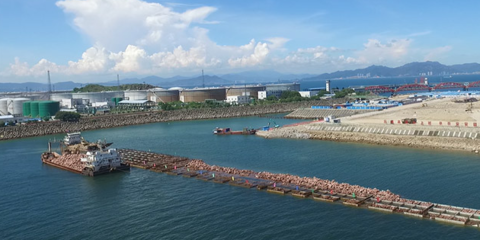Diverting shipping away from the Suez Canal cost Egypt nearly $7bn this year as revenues dropped by 60% year on year.
The figures emerged following a meeting on Thursday between Egyptian President Abdel Fattah El-Sisi and the chairman and managing director of the Suez Canal Authority, Admiral Ossama Rabiee.
Egypt lost more than 60% of the canal’s revenues in 2024 compared with 2023, as ships avoided the Red Sea and took the longer route around southern Africa.
That has been a response to attacks by the Houthi rebel group, which is responsible for launching dozens of attacks on commercial vessels and the deaths of four seafarers in the past year.
El-Sisi also reviewed the impact of regional developments on shipping traffic through the Suez Canal during the current year, according to a statement from the Egyptian president’s office.
The meeting touched on the ongoing projects to modernise the Suez Canal’s navigation route to enhance its value and role in global supply chains and trade.
These projects include the expansion of the navigation route from kilometre 132 to kilometre 162 to allow for the passage of larger vessels.
This is in addition to the completion of the navigation channel from kilometre 122 to kilometre 132, which will help increase cargo volume and speed up the movement of vessels in both directions.
El-Sisi gave directives to continue the completion of the Suez Canal development projects to enforce the canal’s role as a key pillar in global trade, a spokesperson said.
On Friday, AP Moller-Maersk denied that one of its ships had been attacked in the Arabian Sea. The Houthis had said on their Telegram channel that the 7,100-teu Santa Ursula (built 2012) was targeted near the island of Socotra.
The Houthis frequently release unsubstantiated claims of attacks on shipping.





